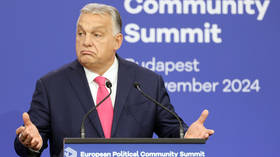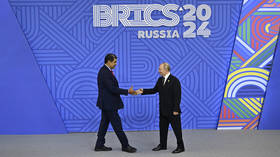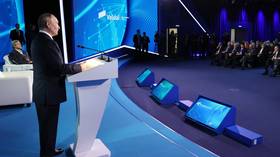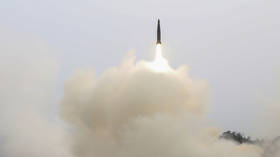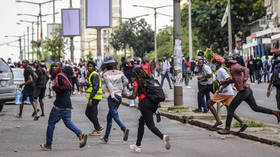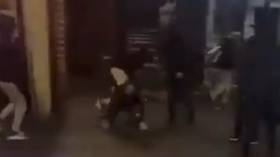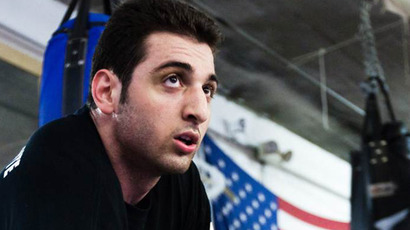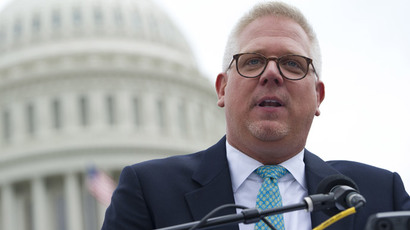FBI interrogation violated Boston bomber’s constitutional rights - lawyers
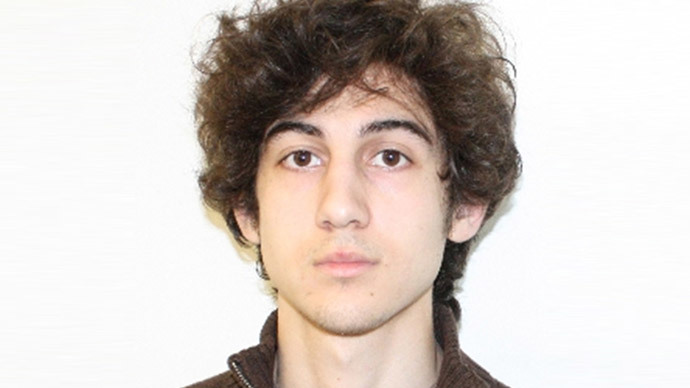
Suspected Boston Marathon bomber Dzhokhar Tsarnaev requested a lawyer multiple times from his hospital bed after being arrested, yet investigators continued pressuring him to answer questions alone, Tsarnaev's lawyers claimed in court Thursday.
Agents from the Federal Bureau of Investigation spent hours interrogating Tsarnaev after he first asked for an attorney while recovering from gunshot wounds to the face, throat, head, and jaw in the time following his arrest in Watertown, Massachusetts, the documents said. When defense attorneys did arrive at Beth Israel Deaconess Medical Center, at least one FBI agent allegedly told them Tsarnaev was not even in custody.
Tsarnaev’s defense team asked US District Court Judge George O’Toole to strike from evidence any statements or comments Tsarnaev made in the hours directly after his arrest, claiming the FBI violated his constitutional rights. They also asked the court to declare the death penalty unconstitutional in this case because capital punishments are not carried out in Massachusetts in a separate filing Wednesday.
Dzhokhar Tsarnaev, 19 years old at the time, and his brother Tamerlan, 26, allegedly planted bombs near the finish line at the Boston Marathon on April 15, 2013. The bombs exploded roughly 12 seconds apart and 210 yards away from each other, killing three people and injuring an estimated 264 others.
Law enforcement officials identified the Tsarnaev brothers upon reviewing surveillance footage of the incident and, on the night of April 18, chased the pair through Cambridge and Watertown, Massachusetts. The pursuit ended in a gunfight, with Tamerlan being fatally shot and eventually run over, while Dzhokhar hid in a covered boat until surrendering hours later because of his injuries.
“Despite Mr. Tsarnaev’s entreaties to be left alone, allowed to rest, and provided with a lawyer, the agents persisted in questioning him throughout the night and into the morning,” Tsarnaev’s lawyers said in court Thursday of his time in the hospital, as quoted by the Boston Globe.
Tsarnaev was heavily drugged at the time, the lawyers claim, adding that his eye was sutured closed, jaw wired shut, and temporarily deaf in one ear. Tsarnaev had a tracheotomy tube in his throat and was unable to speak so he wrote his answers in a notebook. The pen trailed off the page multiple times, possibly caused by his falling asleep or losing motor control.
The defense team asserted that, despite his trouble communicating, Tsarnaev wrote and circled the word “lawyer” ten times. He also wondered how Tamerlan could still be alive, as the investigators falsely claimed.
“Is my brother alive I know you said he is are you lying?” Tsarnaev wrote, according to the Los Angeles Times. He also stated, “I’m exhausted,” “Can we do this later,” and “I need to throw up.”
“The questioning continued for hours, in what was obviously an effort to extract as much incriminating information as possible, without regard for the protections of the Fifth Amendment,” the defense went on.
The arresting law enforcement officials said at the time that they had not read Tsarnaev his Miranda Rights upon taking him into custody. In doing so, they cited a “public safety exception” that is allowed to be used when a suspect is thought to have pressing information immediately relevant to the public’s interest.
The exception was created as a result of a 1984 Supreme Court ruling which authorized police to ask a suspected rapist where he placed a gun that a witnesses had observed him with earlier, with the court deeming the immediate location of the gun more important than the rapist’s Miranda Rights.
Mario Barnes, a professor at the UC Irvine School of Law, told the LA Times “there’s some probability” that the defense will win the motion. The judge will have to determine if “the threat was more significant than the harm that comes to you from the failure to give you the [Miranda] warning,” he said.
However George T. Leone Jr., a former state and federal prosecutor who has worked on terrorism cases, told the Globe that the atmosphere of panic at the time of Tsarnaev’s arrest could ultimately work against the defense.
“You’d be hard-pressed not to say that to allow these statements in would require a wide expansion of the law as it presently exists,” he said. “In matters like this one, particularly in terrorism matters, the goal isn’t always to obtain information to be used later at trial. The goal is to save lives.”
An unrelated request filed Wednesday also asked Judge O’Toole to declare the Federal Death Penalty Act unconstitutional, claiming that the federal government should have no right to seek a punishment that has been abolished in the state where the trial is set to take place. The defense admitted that federal judges often preside over death penalty trials, but noted the government’s growing hesitation in applying the law to states where capital punishment is not enforced.
“The Supreme Court has placed renewed emphasis on respecting the limitations of federal authority in areas that have traditionally been consigned to the states,” the lawyers argued, as quoted by journalist Milton Valencia.
The defense is expected to submit a motion to suppress digital evidence regarding 35 different digital searches no later than May 12. The prosecution has yet to file a motion in response to Wednesday’s filing.


